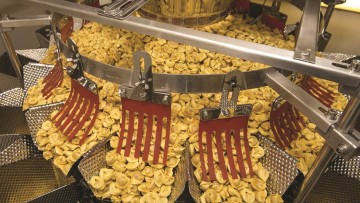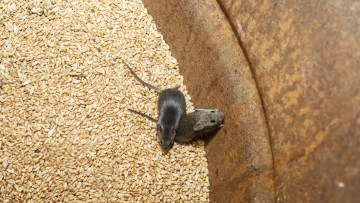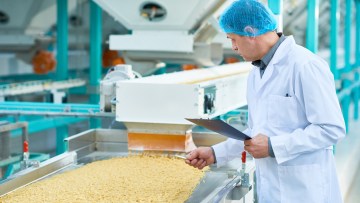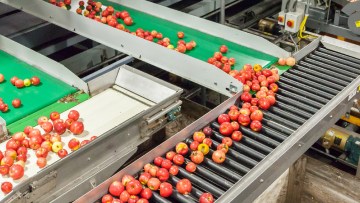Food Industry
The presence of pests in food processing plants or storage areas can lead to failed hygiene audits and seriously undermine your business. Imagine what might happen if poor pest control led to food poisoning or a damaged reputation… BASF products, used in the context of maintaining food hygiene, represent high effectiveness and value-for-money for food business owners and operators.
Usual issues

Food hygiene
Hygiene is paramount in any commercial activity related to the handling and processing of all types of food. Pest control features highly among the various measures that need to be put into place to ensure very high standards of cleanliness and sanitation. Typically, this requires specialist input from trained professionals to help ensure that your food operation sails smoothly through food hygiene audits.
Safe storage
The same exacting standards of hygiene apply to food storage. Rodents and insects pose an added challenge. Not only do they contaminate the food stuff which is either in the manufacturing process or awaiting transport to customers, they also consume it. With the result that the cost of controlling the infestation and the loss of contaminated food stuffs both drive your operating costs up.
Impact / risks
Pests can pose a real health risk
The health risks associated with pests in the food industry are obvious: cockroaches and flies can spread diarrhoea, dysentery and typhoid fever. Rats are known as carriers of a range of harmful pathogens including, famously, the one that is responsible for the bubonic plague. You certainly don’t want those pests and others to come anywhere near food handling, processing or storage areas. Nor would you want your staff to fall ill.
Pest infestations are costly

The control of rodents, cockroaches and other insects naturally carries a cost but that pales into insignificance compared to the costs incurred when pests pose a problem. A product may need to be recalled, for instance, or a production line may have to be stopped because of an infestation.
Pests are attracted to food and what they contaminate and consume can have a considerable impact on your bottom line. Added to that is the cost of the structural damage that pests such as rodents or termites can inflict on food processing facilities and warehouses.
Insufficient pest control can be an indication of generally poor management and is likely to damage your operation’s reputation.
Failure to control pests can be fatal to your business
Losing revenue to pests is bad enough, but if food hygiene is severely compromised, you run the risk of losing your business altogether.
In the EU, for instance, two pieces of legislation offer specific guidance on the steps to be taken by the food industry to “guarantee a high level of protection of human life and health and the protection of consumers’ interests” : the General Food Law and the Food Hygiene Law. Similar legislation exists in the UK (Food Standards Act 1999), and in many other countries. Failure to comply with these legal instruments can be penalised heavily, and ultimately lead to closure.
Benefits to use BASF products

Treatment by professionals for effective control
Pest controllers who work in the food industry understand their clients’ priorities and concerns regarding food hygiene. They can implement non-chemical measures, e.g. proofing, to avoid contamination from pests in the first place. They can also advise clients on the appropriate treatment programmes, the conditions prevailing in the facility and the extent of the infestation. The BASF pest control solutions’ products rely on highly effective active ingredients within innovative formulations. BASF insecticides and rodenticides are quick and convenient to apply by trained professionals.
BASF, a partner in food hygiene management
The fast-acting and long-lasting treatment provided by BASF pest control solutions lies at the heart of many integrated pest management strategies. Combined with rigorous cleaning and sanitation procedures, they bring the peace of mind that goes with the knowledge that your pest control operations are dealt with promptly and effectively.


